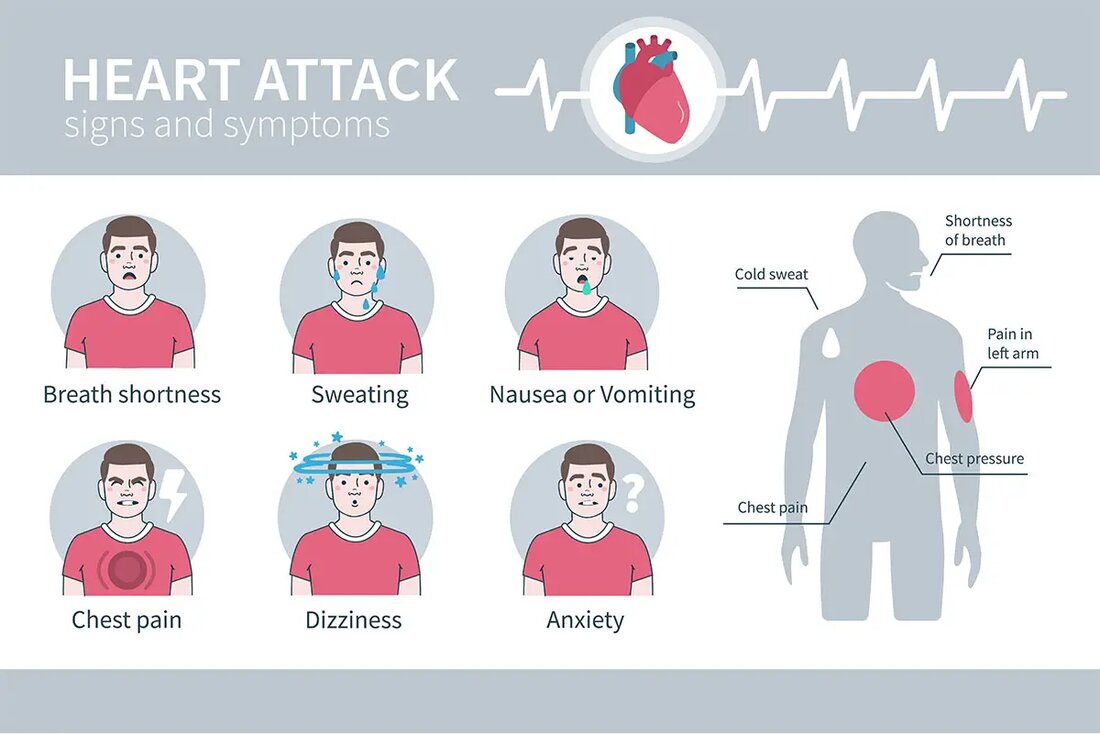Study suggests this one food may help prevent fatal heart attacks and strokes
Spicy food lovers can benefit their heart health as recent research has found that eating chili peppers significantly reduces the risk of heart attack and stroke. A study published in the Journal of the American College of Cardiology (JACC) found that people who consume chili peppers four or more times per week have a 40% lower risk of dying from a heart attack and a 60% lower risk of dying from cerebrovascular diseases such as stroke, compared to those who do not eat chili peppers regularly. Lead researcher Marialaura Bonaccio, PhD, an epidemiologist at the Neuromed Mediterranean Neurological Institute in Pozzilli,...

Study suggests this one food may help prevent fatal heart attacks and strokes
Spicy food lovers can benefit their heart health as recent research has found that eating chili peppers significantly reduces the risk of heart attack and stroke. A study published in the Journal of the American College of Cardiology (JACC) found that people who consume chili peppers four or more times per week have a 40% lower risk of dying from a heart attack and a 60% lower risk of dying from cerebrovascular diseases such as stroke, compared to those who do not eat chili peppers regularly.
Lead researcher Marialaura Bonaccio, PhD, an epidemiologist at the Neuromed Mediterranean Neurological Institute in Pozzilli, Italy, found that the protective effects of chili peppers were consistent regardless of a person's diet. The study analyzed data from 22,811 men and women aged 35 and over from the Molise region of Italy and tracked their health over an average of eight years.
It is important to recognize the signs and symptoms of a heart attack and stroke in order to seek medical attention in a timely manner. Here are some common symptoms for each:
Heart attack:
- Brustschmerzen oder -beschwerden: Dies kann sich wie Druck, Quetschen, Völlegefühl oder Schmerzen in der Mitte der Brust anfühlen. Das Gefühl kann länger als ein paar Minuten anhalten oder kommen und gehen.
- Oberkörperbeschwerden: Schmerzen oder Beschwerden können sich auf einen oder beide Arme, den Rücken, den Nacken, den Kiefer oder den Magen ausbreiten.
- Kurzatmigkeit: Dies kann mit oder ohne Brustbeschwerden auftreten.
- Kalter Schweiß, Übelkeit oder Benommenheit: Diese Symptome können die oben genannten Symptome begleiten oder alleine auftreten.
Stroke:
- Plötzliche Taubheit oder Schwäche: Dies kann im Gesicht, Arm oder Bein auftreten, insbesondere auf einer Seite des Körpers.
- Plötzliche Verwirrung oder Schwierigkeiten beim Sprechen: Die Person kann Schwierigkeiten haben, Sprache zu verstehen oder deutlich zu sprechen.
- Plötzliche Sehstörungen: Diese können in einem oder beiden Augen auftreten und sich als verschwommenes oder geschwärztes Sehen äußern.
- Plötzliche Probleme beim Gehen: Die Person kann Schwindel, Gleichgewichtsverlust oder Koordinationsprobleme erfahren.
- Plötzliche starke Kopfschmerzen: Diese Kopfschmerzen können von unbekannter Ursache begleitet sein und können als die „schlimmsten Kopfschmerzen ihres Lebens“ bezeichnet werden.
To quickly recognize the signs of a stroke, remember the acronym FAST:
- Gesicht: Bitten Sie die Person zu lächeln. Hängt eine Seite des Gesichts herab?
- Arme: Bitten Sie die Person, beide Arme zu heben. Driftet ein Arm nach unten?
- Sprache: Bitten Sie die Person, einen einfachen Satz zu wiederholen. Ist ihre Sprache verschwommen oder schwer verständlich?
- Zeit: Wenn eines dieser Symptome vorhanden ist, rufen Sie sofort den Notdienst an.
In both cases, it is crucial to seek medical attention immediately to improve your chances of survival and minimize possible complications. If you or someone around you experiences any of these symptoms, do not hesitate to call emergency services.
While previous research has shown the benefits of chili peppers, the results have been less significant. A 2015 study in China and a 2017 study based on data from the U.S. National Health and Nutrition Examination Survey found a 14% and 13% risk reduction in death, respectively.
Capsaicin, the active ingredient responsible for the spiciness of chili peppers, may contribute to these health benefits. Capsaicinoids, a class of compounds that include capsaicin, can affect platelet function, the cells that line blood vessels, and reducing insulin resistance. A 2012 study in China also found that capsaicinoids can block a gene responsible for arterial contraction and reduce the accumulation of cholesterol.
However, experts emphasize that maintaining an overall healthy lifestyle is crucial for heart health and chili peppers should be part of a balanced diet rather than a replacement for healthy habits. The study had some limitations, including an observational study that relied on self-reported data and focused on a specific region, which may limit the applicability of the findings to other ethnic backgrounds.
Sources:
- (Link entfernt)
- (Link entfernt)
- (Link entfernt)
- (Link entfernt)
- (Link entfernt)
- (Link entfernt)

 Suche
Suche
 Mein Konto
Mein Konto
